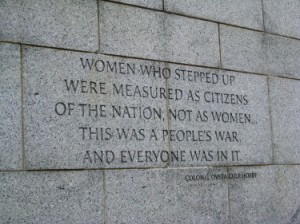I loathe job interviews. They are, in fact, the thing I am worst at: selling myself.
I’m not sure if I’m bad at this because I’m an introvert (yes, I know, all evidence to the contrary) or because I am, at base, somehow convinced that I’m ATAABOC and just don’t understand why everyone else doesn’t immediate perceive that and judge me based on my concrete achievements rather than whether or not I hold up well under direct questioning. I’m going to go with some of both, heavily weighted toward the introvert explanation.
The thing is, when a job interview goes really bad, I can usually tell. Like one I had a couple of years ago where the department supervisor asked me how I would handle on a Monday morning the work flow on:
- a press release for a press conference happening that afternoon.
- a request for a web site update from a department that hadn’t updated their content in 6 months.
- a change request for something that was incorrect on the site.
- a request from a senior manager for training a new staff member.
If I didn’t know it was physically impossible I would say that a sign lit up over my head that read “I’ve got 8 years’ experience in my field and you’re asking me how I’d prioritize these tasks. You’re shitting me.” Regardless, that was the moment that I not only blew my chances at that job but also decided that I didn’t want to work there anyway.
How today’s went, I don’t know. I just keep reminding myself: I am interviewing them as much as they are interviewing me and anyone who hires me is lucky to get me. I’m not perfect (no one is) but I’m damn good.












